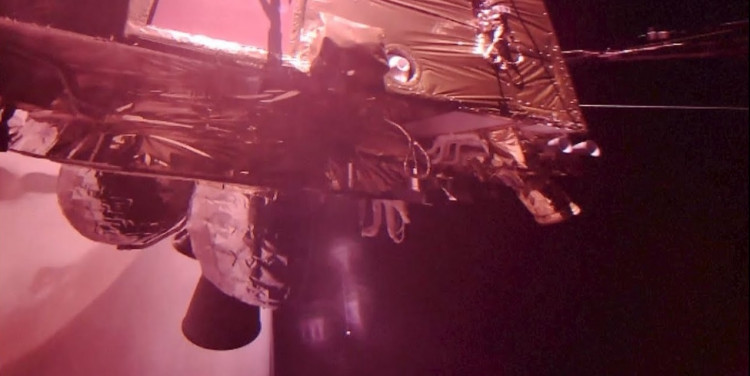One of the spaceflight industry's most coveted prizes has been given to China's Tianwen 1 Mars mission.
The mission accomplished a first-ever combined orbiting, landing, and roving in a single launch, earning it the annual space accomplishment award from the International Astronautical Federation on Sunday, Sept. 18, during the 73rd International Astronautical Congress (IAC) in Paris.
While the Zhurong rover is currently hibernating to survive the winter on Mars's northern hemisphere, Tianwen 1 is continuing its prolonged science missions in Mars orbit.
During a question-and-answer session, a member of the mission team stated that the 530-pound (240 kilograms) solar-powered rover is currently anticipated to awaken and resume operations in December or January when additional solar energy reaches Mars.
During a highlight lecture at this year's IAC, International Astronautical Federation (IAF) President Pascale Ehrenfreund revealed the team behind the spacecraft's development. '
The Tianwen 1 spacecraft launched from Wenchang on July 23, 2020, and arrived in Mars orbit in February 2021. The mission's solar-powered Zhurong rover then successfully landed in the Red Planet's Utopia Planitia plain in May of that year.
In a highlight lecture, Jilian Wang, vice president of the China Academy of Space Technology (CAST), which developed the spacecraft, presented an overview of the mission and outlined some of the major scientific achievements thus far, including a global mapping of Mars and data returning evidence for an ancient Martian ocean.
Wang also mentioned the mission's visual highlights, such as selfies taken in the Mars orbit and footage of the orbital insertion.
With an ambitious mission to bring samples from Mars to Earth, China is likewise hoping to build on its success on the planet. The Tianwen 3 mission, which would carry landing and orbiter spacecraft to Mars in 2028, will entail two Long March 5 launches, China's heaviest rocket.
Prior to that, the nation plans to launch Tianwen 2 in 2025 to carry out its first asteroid sample-return mission.
The missions will almost certainly be available to international cooperation. "We wish to partner with more space agencies, space companies, universities and all kinds of other entities," Wang said. "As always, international partners are welcome to join us."
In 2021, Japan's Hayabusa2 asteroid sample return mission earned the award. China previously received the IAF prize in 2020 for the Chang'e 4 lunar landing.





